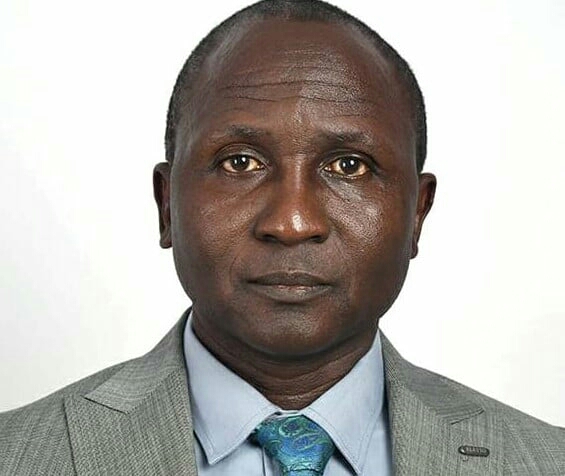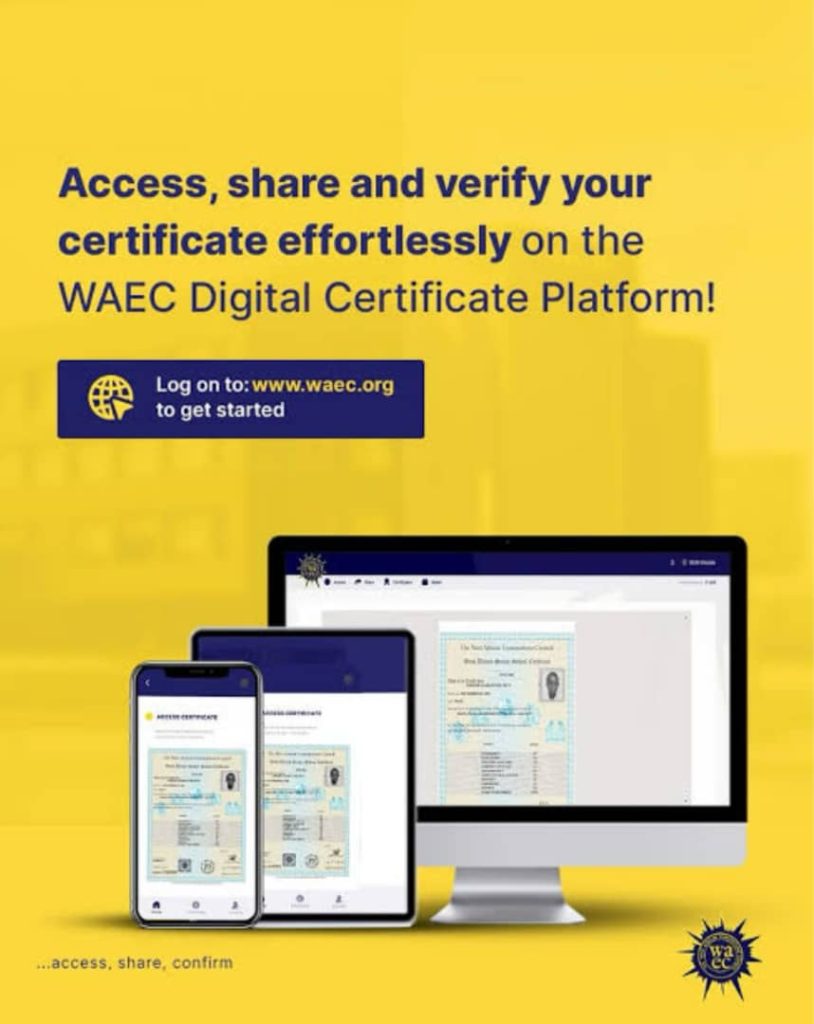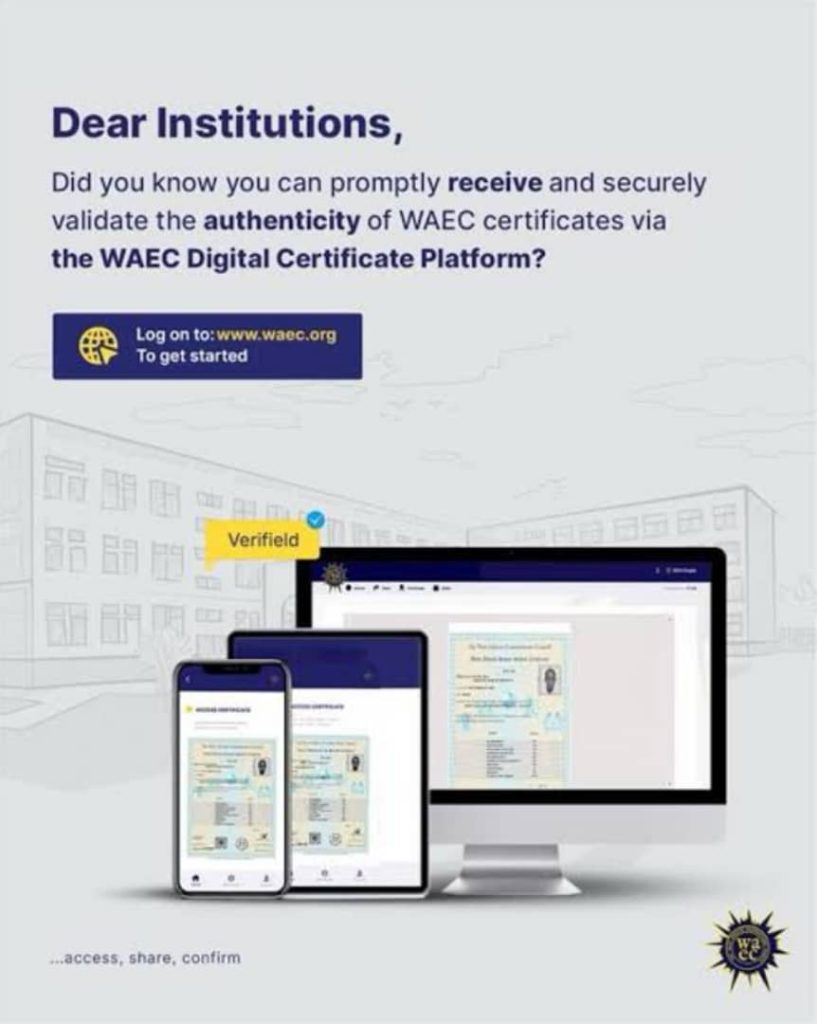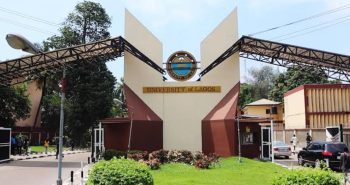Subscribe to the our newsletter to receive latest news straight to your inbox.
Hidden but powerful impacts of WAEC on nation building in Nigeria
By Clifford Ejenavi Beyond its role as an examination body, the West African Examinations Council (WAEC) plays a silent yet critical role in Nigeria’s nation-building. By setting and maintaining unified academic standards, WAEC fosters educational consistency across the country, bridging regional and cultural divides. WAEC’s certification system enhances employability, fuels upward social mobility, and provides…

By Clifford Ejenavi
Beyond its role as an examination body, the West African Examinations Council (WAEC) plays a silent yet critical role in Nigeria’s nation-building. By setting and maintaining unified academic standards, WAEC fosters educational consistency across the country, bridging regional and cultural divides.

WAEC’s certification system enhances employability, fuels upward social mobility, and provides reliable data for education policy reforms. It also strengthens Nigeria’s reputation within West Africa, promoting regional integration and trust in academic qualifications. Though often overlooked, these contributions form an essential pillar for Nigeria’s human capital development and socio-economic progress.
A clear, fact-based take on WAEC’s impact on nation building in Nigeria that many Nigerians don’t often notice goes beyond just conducting exams. WAEC quietly ensures that a student in Sokoto is assessed on the same standard as one in Enugu. This unifies learning expectations nationwide and supports mobility, as students can move across states without needing a different certification.

For national planning, every year, WAEC’s performance statistics provide critical data for government, policymakers, and researchers. These results show trends in literacy, STEM performance, and regional educational gaps, which guide funding and curriculum reforms.
WAEC is often the first truly nationwide “merit gate” for young Nigerians. Admission into universities, polytechnics, colleges of education, scholarships, and many job opportunities start with WASSCE results, breaking some social barriers by giving talent from rural areas a pathway to compete nationally and internationally.

For international recognition of Nigerian education, WAEC certificates are recognised across Africa and the world at large. This boosts Nigeria’s global academic credibility and enables student migration for higher education and professional careers abroad.
For economic contributions, beyond exam fees, WAEC employs thousands of Nigerians annually including examiners, invigilators, security, IT support, and logistics workers stimulating the economy in subtle but widespread ways.

As a West African body, WAEC promotes regional unity not just in Nigeria. Nigerian students share the same exam framework as Ghana, Sierra Leone, The Gambia, and Liberia. This fosters cross-border educational cooperation and cultural understanding.
For early civic responsibility, sitting for WAEC is often a student’s first encounter with a structured, rule-bound, high-stakes process. It instils discipline, respect for regulations, and an understanding of fairness and foundation for responsible citizenship.
In terms of historical record keeping, WAEC holds one of the most complete archives of academic records in Nigeria, serving as a trusted custodian for decades. This continuity strengthens national documentation and prevents the erosion of educational history.

A snapshot of the Head of the Nigeria National Office (HNO) of WAEC, Nigeria, Dr. Amos Josiah Dangut, explains his impact. He oversaw the launch of WAEC’s digital certificate platform, which has been widely praised for simplifying result verification and admissions processes both locally and internationally. The system enhances data security and aligns with global best practices.
Dr. Dangut is championing the transition of the West African Senior School Certificate Examination (WASSCE) toward Computer-Based Testing (CBT). The first major deployment for private WASSCE candidates in early 2024 was described as exciting and seamless, with standardized, fair environments across venues.
Looking ahead in line with the Federal Government digitalisation of the education system, Dr. Dangut expressed ambitions to extend CBT to school candidates and ultimately digitize all exams, marking a clear move toward modernization. With over 25 years of experience at WAEC, Dr. Dangut has consistently leveraged ICT to improve test development, administration, and post-test activities, supporting greater transparency and efficiency.

He has pushed forward digital innovation in result management and exam formats, bringing decades of institutional experience and ICT leadership to WAEC while rebuilding trust through responsive engagement with oversight bodies. Dr. Dangut stands out as a modernizer, steering WAEC toward more efficient, secure, and globally-aligned technologies.
Since its establishment in 1952, WAEC has been a pillar of educational assessment in Nigeria and across West Africa, setting standards for academic excellence, discipline, and credibility. While technical glitches and administrative delays occasionally occur as they do in many global examination systems, WAEC has consistently shown resilience by addressing such issues swiftly and transparently.

Education experts affirm that these temporary setbacks should not overshadow the Council’s decades-long contributions to national and regional development. WAEC’s examinations continue to serve as the benchmark for university admissions, scholarship opportunities, and global recognition of African students.
The Council reassured the public of ongoing improvements in its technology, processes, and security systems to prevent future disruptions. WAEC’s credibility is built on strict examination ethics, robust marking standards, and the continuous training of examiners.
Stakeholders, including school administrators and parents, have also called for patience and support for WAEC, urging candidates and stakeholders not to lose confidence in the institution. WAEC remains a cornerstone of education in Nigeria. What it needs now is cooperation and constructive engagement from all.
As Nigeria continue to strive for educational advancement, retaining the integrity of WAEC is not just the Council’s responsibility but a collective duty. With reforms underway and lessons learned from recent challenges, WAEC stands poised to strengthen its role as a trusted gatekeeper of academic standards for generations to come.
Recommended Articles
-
We didn’t scrap JSS, SSS education system – FG
8 months ago363 views -
Ongoing WASSCE: WAEC warns candidates against exam malpractice
1 week ago11 views -
2025/2026 Post-UTME: No technical glitch, UNILAG clarifies
2 weeks ago104 views -
SLAS now fully digitalised to accelerate student loan process – NELFUND
3 months ago307 views -
NELFUND warns institutions against withholding loan disbursement information from students
6 months ago327 views









